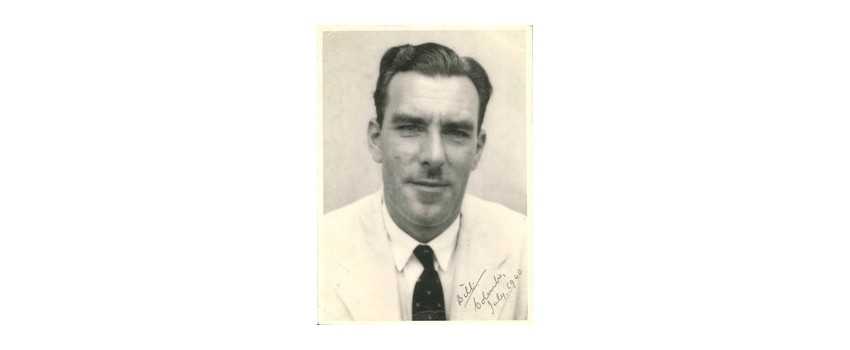Lovelock, William
William Lovelock was a prolific English composer whose music continues to captivate audiences today. Born in 1899, Lovelock's life was marked by a deep passion for music, manifested in a diverse and impressive body of work. Lovelock left an indelible mark on the British music scene from his early days as a chorister at St. Paul's Cathedral to his later career as a composer and music educator. His works spanned a wide range of genres, from choral music to chamber works, and his use of melodic motifs and harmonic structures was both innovative and deeply expressive.
Early Life and Education
William Lovelock was born on the 13th of March, 1899, in South London. He was the youngest of four children, and his family was musically inclined. His father was a talented amateur musician, and Lovelock's older brother, Reginald, went on to become a renowned organist and composer. Lovelock showed an early aptitude for music, and at the age of nine, he was accepted as a chorister at St. Paul's Cathedral.
Lovelock's time at St. Paul's was formative, and he received a rigorous musical education there. He learned to read music and sing in Latin, and he was exposed to a wide range of musical styles. He also began composing at a young age, and his first published work, a setting of Psalm 121, was published when he was just 16 years old. After leaving St. Paul's, Lovelock continued his musical studies at the Royal College of Music, where he studied composition with Ralph Vaughan Williams and other notable composers.
Despite his early successes, Lovelock faced many challenges in his personal life. He struggled with depression and anxiety and was deeply affected by the loss of his brother Reginald, who died in 1918 while serving in World War I. Nevertheless, Lovelock persevered, and his music continued to evolve and flourish.
Lovelock's Early Compositions
Lovelock's early compositions were heavily influenced by his time at St. Paul's, and many were choral works. He often set religious texts to music, and his use of harmony and counterpoint was sophisticated and emotive. One of his most famous early works is his setting of the hymn "O Praise Ye the Lord," which is still sung in churches today.
As Lovelock's career progressed, he began branching into other genres. He composed chamber works, orchestral pieces, and music for films and radio broadcasts. His music continued to be marked by a strong melodic sensibility and a deep emotional resonance. His works are notable for their rich harmonic language, often involving unexpected modulations and chromaticism.
Lovelock's Musical Career
Both successes and challenges marked Lovelock's career as a composer. He received numerous commissions and awards, including a commission from the BBC to compose a piece for the coronation of Queen Elizabeth II in 1953. He also won the Cobbett Prize for chamber music in 1929 and was appointed a Fellow of the Royal College of Music in 1951.
However, critics could have better received Lovelock’s music. Some dismissed his work as overly sentimental or derivative, and he struggled to gain recognition outside Britain. Nevertheless, his music continued to find an audience, and many of his works are still performed and recorded today.
In addition to his work as a composer, Lovelock was also an accomplished music educator. He taught at the Royal Academy of Music and the Guildhall School of Music and wrote several influential textbooks on music theory and composition. His students included many notable musicians, and his influence on the next generation of British composers was profound.
Lovelock's Compositional Style and Influences
Lovelock's compositional style was deeply influenced by the English choral tradition and by the works of composers like Vaughan Williams and Gustav Holst. The French impressionists, particularly Debussy and Ravel, also influenced him, and his use of harmony and orchestration often reflects this influence. Lovelock's music is marked by a strong sense of melody and a deep emotional resonance. He often used recurring melodic motifs and harmonic structures to create a sense of unity and coherence in his works.
One of Lovelock's most famous works is his "Concerto Grosso for String Orchestra," which premiered in 1948. The piece is notable for its use of a solo quartet within the larger string orchestra and its inventive use of harmony and form. The concerto grosso was popular in the Baroque era, and Lovelock's piece is a modern take. The work was well-received by critics and remains a staple of the string orchestra repertoire.
Conclusion
William Lovelock was a composer whose music continues to captivate audiences today. His use of melodic motifs and harmonic structures was innovative and deeply expressive, and his works spanned a wide range of genres. Despite facing many challenges in his personal life, Lovelock persevered, and his music continued to evolve and flourish. His legacy as a composer and music educator is profound, and his influence on the next generation of British composers is still felt today.


